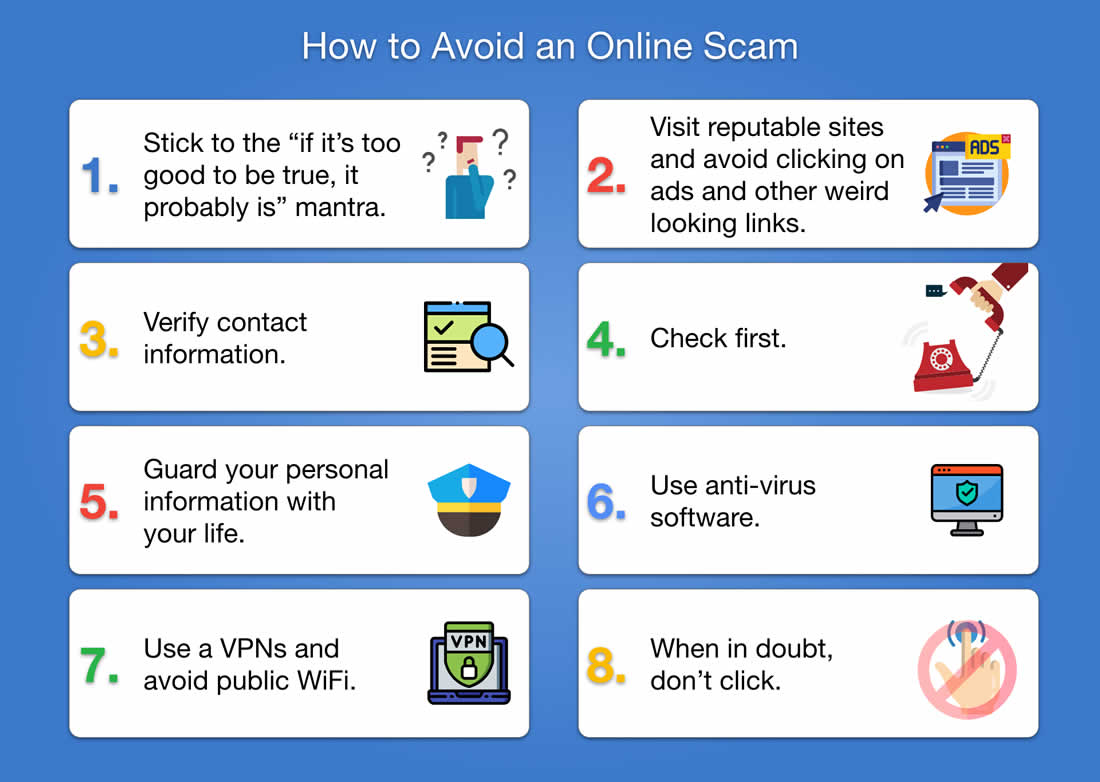Guarding Against Dangerous Internet Scams: Your Shield Against Cyber Deception
By: Javid Amin
In the vast and ever-evolving landscape of the internet, an array of risks and dangers lurk, with internet scams being one of the most prevalent and insidious threats. Scammers employ a myriad of cunning tactics to dupe unsuspecting individuals into divulging their personal information or parting with their hard-earned money.
Here are some of the most common internet scams that you should be vigilant about:
- Phishing Scams: These scams are elaborate ruses designed to coax you into revealing personal information, like passwords or credit card numbers. Phishing emails often pose as messages from legitimate entities such as banks or government agencies.
- Advance Fee Fraud: This classic scam involves scammers promising a substantial reward or benefit, but only if you pay an upfront fee. Once the fee is paid, the scammers vanish into thin air, leaving you empty-handed.
- Investment Scams: Fraudulent investment schemes offer enticingly high returns with minimal risk, but they are nothing more than elaborate hoaxes. The infamous Bernie Madoff Ponzi scheme is a glaring example of an investment scam.
- Online Shopping Scams: These scams entail scammers peddling counterfeit or fake products online. They might also create deceptive websites that mimic legitimate online retailers.
- Tech Support Scams: Scammers impersonate well-known tech companies like Microsoft or Apple, offering to help with computer issues. In reality, they aim to pilfer your personal information or install malicious software on your device.
- Social Engineering Scams: Social engineering scams hinge on scammers manipulating your trust or leveraging fear to trick you into giving away sensitive information or performing actions you wouldn’t normally do.
How to Fortify Your Defenses Against Internet Scams:
- Exercise Caution with Unsolicited Contacts: Legitimate companies will not solicit personal information via email or phone calls. Be especially cautious if someone contacts you out of the blue requesting sensitive data.
- Research Before Investing: Always scrutinize any company or product before investing. Seek reviews and ratings from other customers to gauge legitimacy.
- Handle Links with Care: Be cautious when clicking on links in emails or on websites. Hover over a link to preview the actual URL before clicking.
- Fortify Your Passwords: Use robust, unique passwords for your online accounts, and enable two-factor authentication where available.
- Stay Updated: Keep your software up to date. Updates often include vital security patches that safeguard your device from malware.
- Question the Unrealistic: Beware of social engineering scams that promise the extraordinary. If it sounds too good to be true, it probably is.
If you suspect you’ve fallen victim to an internet scam, report it to the authorities promptly and notify the company that was impersonated in the scam.
Here are some additional strategies for bolstering your defenses against internet scams:
- Guard Your Personal Information: Exercise discretion about what you share online, especially on social media and untrustworthy websites.
- Exercise Caution with Email Attachments: Be cautious when opening email attachments from unknown senders, as they can harbor malware.
- Watch Your App Downloads: Download apps only from trusted sources, such as official app stores.
- Implement Security Solutions: Consider using security software to protect your devices from malware.
By adhering to these precautions and strategies, you can erect a robust defense against internet scams and help safeguard your digital life from deceitful cyber threats. Stay vigilant, stay informed, and stay safe in the digital realm.






